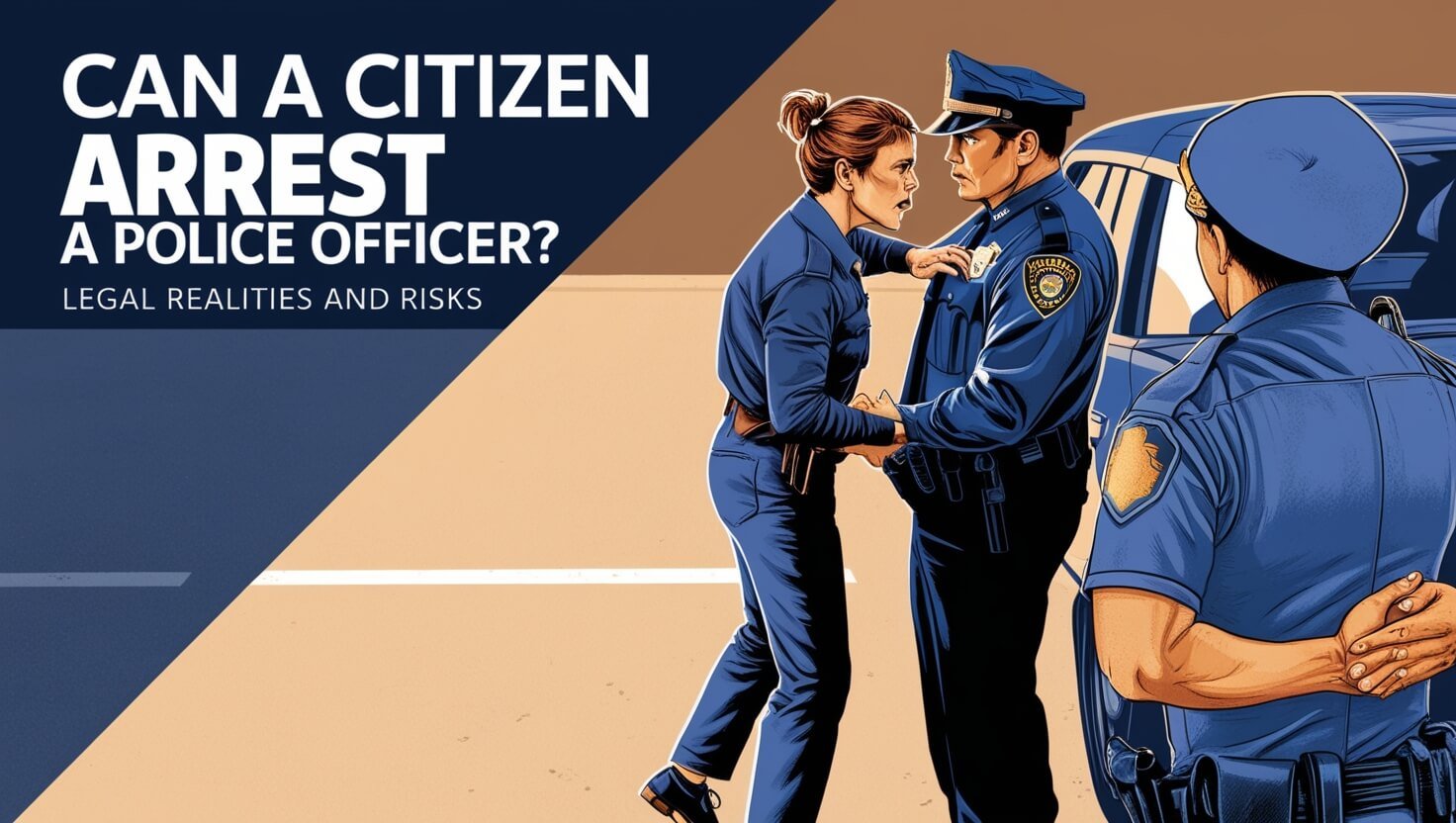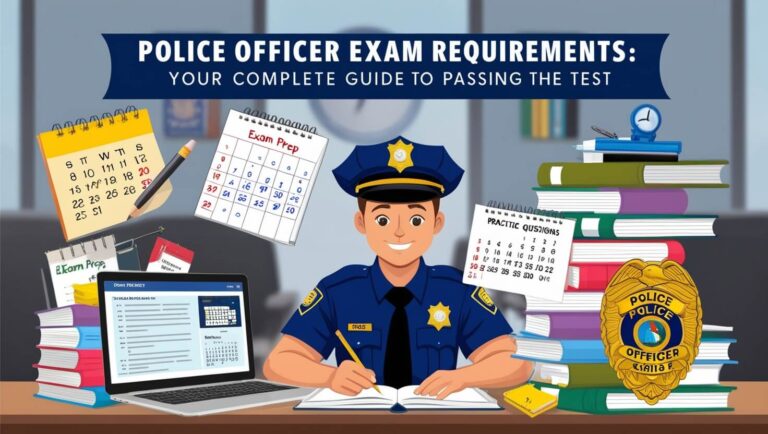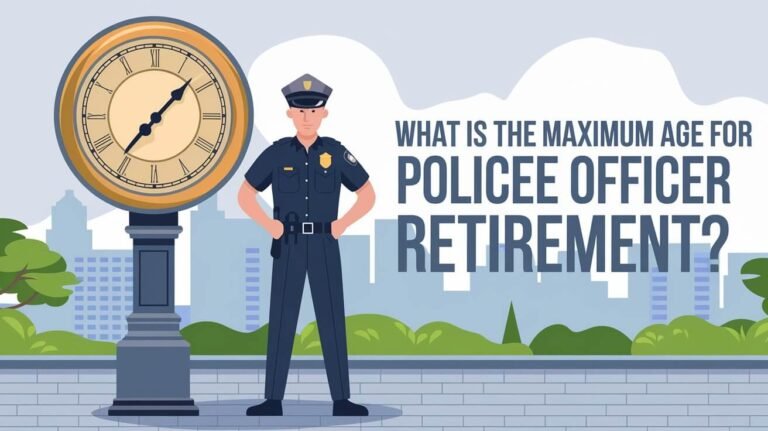Can a Citizen Arrest a Police Officer? Legal Realities and Risks

A citizen can technically arrest a police officer under specific circumstances, but it’s a risky and complex situation with potentially serious consequences. This article explores the legal landscape, practical considerations, and alternatives to taking such drastic action.
Citizen’s Arrests
Citizen’s arrests have deep roots in legal history. They emerged as a way for communities to maintain order before the establishment of modern police forces. Today, these laws remain on the books in many jurisdictions, but their application to law enforcement officers is a contentious issue.
Definition and Historical Context
A citizen’s arrest occurs when a private individual detains someone they believe has committed a crime. This practice dates back to medieval England, where it was codified in the Statute of Winchester in 1285. As societies evolved, so did the concept of citizen’s arrests.
Legal Basis for Citizen’s Arrests
Most U.S. states allow citizen’s arrests to some degree. The specifics vary, but generally, a private person can detain someone who commits a felony in their presence. Some jurisdictions extend this right to certain misdemeanors, especially those involving a breach of peace.
The Legality of Arresting a Police Officer
The idea of a civilian arresting a police officer might seem counterintuitive. After all, officers are the ones usually doing the arresting. But in some cases, it’s legally possible.
State Laws on Citizen’s Arrests of Officers
State laws differ widely on this matter. Some explicitly prohibit citizens from arresting police officers, while others are silent on the issue. In states where it’s not explicitly forbidden, the general rules of citizen’s arrests might apply to officers as well.
Federal Perspectives on Arresting Law Enforcement
Federal law doesn’t specifically address citizen’s arrests of police officers. However, interfering with a federal officer’s duties is a crime. This creates a gray area when it comes to arresting officers at the federal level.
Requirements for a Valid Citizen’s Arrest of an Officer
Attempting to arrest a police officer is no small matter. Specific conditions must be met for such an action to be considered lawful.
Witnessing a Felony
For a citizen’s arrest of an officer to be valid, the civilian must typically witness the officer committing a felony. This high bar exists to prevent unnecessary confrontations based on misunderstandings or minor infractions.
Reasonable Suspicion vs. Probable Cause
While police need probable cause to make an arrest, civilians often need more certainty. In many jurisdictions, a citizen must be sure a crime has occurred before attempting an arrest. This stricter standard aims to prevent false arrests and protect both civilians and officers.
Risks and Consequences of Attempting to Arrest an Officer
Trying to arrest a police officer carries significant risks. It’s crucial to understand these before even considering such action.
Legal Ramifications
If a citizen wrongly arrests an officer, they could face charges like false imprisonment or obstruction of justice. Civil lawsuits are also possible. Even if the arrest is technically justified, proving it in court can be challenging and costly.
Personal Safety Concerns
Police officers are trained and equipped to handle physical confrontations. Attempting to arrest one puts a civilian at risk of injury. Officers may perceive the action as a threat and respond with force, potentially leading to tragic outcomes.
Alternatives to Citizen’s Arrests of Police Officers
Given the risks involved, it’s wise to consider other options when witnessing potential police misconduct.
Reporting Misconduct
Many departments have dedicated units for investigating officer misconduct. Filing a formal complaint can trigger an official review without putting oneself in harm’s way.
Filing Formal Complaints
Beyond internal affairs, civilians can report concerns to civilian oversight boards, the FBI, or state attorney general offices. These bodies have the authority to investigate and take action against officers who break the law.
High-Profile Cases Involving Citizen’s Arrests of Officers
While rare, there have been instances where civilians attempted to arrest police officers. These cases offer valuable insights into the practical and legal challenges involved.
Notable Incidents and Outcomes
One high-profile case occurred in 2013 when a man in Washington state attempted to arrest an officer he believed was driving drunk. The incident ended with the civilian’s arrest, highlighting the risks of such actions.
Lessons Learned from Past Attempts
These cases underscore the importance of understanding local laws and the potential consequences of confronting law enforcement. They also demonstrate the need for clear, official channels to address police misconduct.
The Role of Video Evidence in Police Accountability
In the age of smartphones, video evidence has become a powerful tool for documenting police actions.
Impact of Smartphone Footage
Civilian-recorded videos have brought instances of police misconduct to light, sometimes contradicting official accounts. This has led to increased calls for accountability and policy changes.
Body Cameras and Public Trust
Many departments now require officers to wear body cameras. This technology aims to provide an objective record of police interactions, potentially reducing the need for civilian intervention.
Police Officers’ Perspective on Citizen’s Arrests
Understanding how law enforcement views citizen’s arrests can provide valuable context to this complex issue.
Law Enforcement Training on Civilian Interactions
Police academies typically teach officers how to handle various civilian encounters. However, training on responding to attempted citizen’s arrests of officers is less common.
Officer Safety Concerns
From a police perspective, someone attempting to make an arrest could be seen as a threat. This perception can escalate situations quickly, potentially leading to the use of force.
Legal Protections for Police Officers
Officers enjoy certain legal protections that can complicate citizen’s arrests.
Qualified Immunity Explained
Qualified immunity shields government officials, including police, from civil lawsuits unless they violate clearly established statutory or constitutional rights. This doctrine can make it difficult to hold officers legally accountable.
Challenges to Officer Immunity
Recent high-profile cases of police misconduct have led to calls for reforming or abolishing qualified immunity. Some jurisdictions have begun to limit its scope.
Public Perception and Media Portrayal
How the public views police and citizen’s arrests can influence policy and individual actions.
Influence of High-Profile Cases
Widely publicized incidents of police misconduct have shaped public opinion on law enforcement accountability. This has led to increased scrutiny of police actions and more civilians considering how to respond to perceived misconduct.
Social Media’s Role in Shaping Opinion
Social platforms allow for rapid dissemination of information and opinions about police-civilian interactions. This can both inform the public and sometimes spread misinformation about legal rights and responsibilities.
The Future of Civilian Oversight in Policing
As discussions about police reform continue, new models of civilian involvement in law enforcement are emerging.
Evolving Laws and Policies
Some jurisdictions are updating their laws regarding citizen’s arrests and police accountability. These changes aim to balance public safety with the need for oversight.
Community Policing Initiatives
Many departments are embracing community policing models. These approaches seek to build trust between officers and civilians, potentially reducing confrontations and the perceived need for citizen’s arrests.
What to Do If You Witness Police Misconduct
Witnessing potential police misconduct can be distressing. Here are some safer alternatives to attempting a citizen’s arrest.
Safe and Legal Ways to Intervene
Remaining calm and assessing the situation is crucial. If it’s safe to do so, recording the incident can provide valuable evidence. Calling 911 to request a supervisor or other officers can also help de-escalate the situation.
Documenting Incidents Properly
Taking detailed notes, including badge numbers, vehicle information, and witness contacts, can be invaluable for any subsequent investigation or complaint.
Conclusion: Balancing Civilian Rights and Law Enforcement Authority
The question of whether a citizen can arrest a police officer touches on fundamental issues of law, order, and civil rights. While it may be legally possible in some jurisdictions under specific circumstances, the risks often outweigh the potential benefits.
Instead of attempting to arrest an officer, concerned citizens have safer and more effective options. These include reporting misconduct through official channels, documenting incidents, and engaging in community initiatives to improve police-civilian relations.
As society continues to grapple with issues of police accountability, it’s crucial to find balanced approaches that maintain public safety while ensuring officers are held to the highest standards of conduct. By understanding the legal landscape and available options, citizens can play a vital role in this process without putting themselves or others at unnecessary risk.






